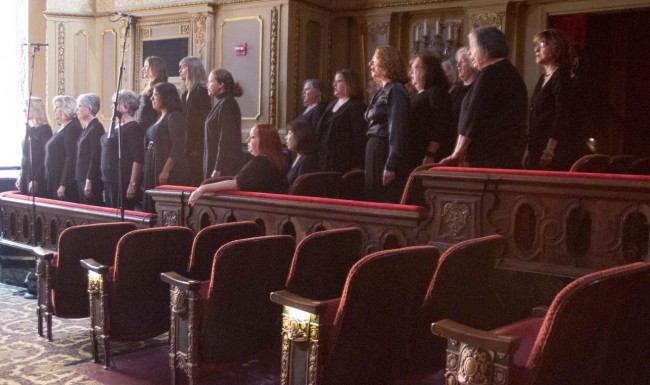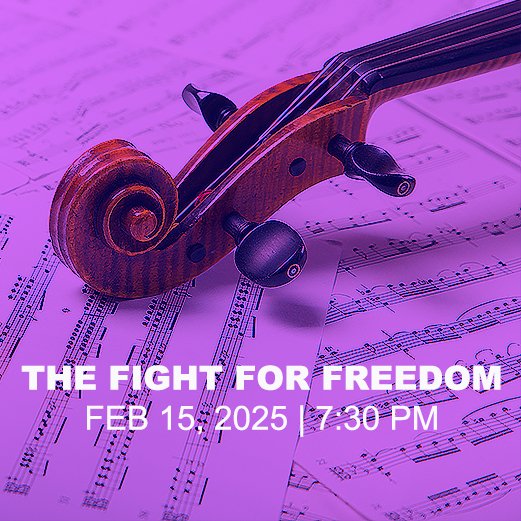New World Chorale Shines in Boston Ballet’s 2015 Mahler’s Third Symphony
The Boston Globe just reviewed the Boston Ballet’s production of Mahler’s Third Symphony – Here is the review, the full story can be found at the link at the end.
By Jeffrey Gantz – Globe Corrrespondent, October 23, 2015
It’s not every day you see 30 men — and no women — on a ballet stage. That’s the cast for the first movement of John Neumeier’s “Third Symphony of Gustav Mahler,” Boston Ballet’s season opener at the Opera House. Running 115 minutes, with no intermission, “Third Symphony” is a huge challenge for a ballet company and its orchestra, and no less for an audience. But Thursday, both the dancers and the musicians offered a landmark performance.
Mahler has, of course, been danced many times before. Antony Tudor set his 1937 “Dark Elegies” (a work Boston Ballet presented in 2008) to “Kindertotenlieder.” Since then, Mahler’s music — mostly his songs — have been set by Kenneth MacMillan, Jirí Kylián, Maurice Béjart, John Cranko, and Pina Bausch, among others. But it’s Neumeier, the Milwaukee-born director of the Hamburg Ballet, who’s taken on the big Mahler symphonies. And none is bigger than the Third, whose six movements call for an alto soloist, a women’s chorus, and a boy choir in addition to the orchestra. Mahler originally supplied movement titles like “What the Flowers in the Meadow Tell Me” and “What the Animals in the Forest Tell Me,” but he withdrew them before the 1902 premiere. With or without a program, the symphony describes an arc of evolution, from flowers to animals to humankind and then angels and finally divine love.
Neumeier, however, goes his own way. Mahler wrote that the Third “has nothing to do with the struggles of an individual”; Neumeier posits his ballet, which premiered in 1975, as the journey of one man. And he’s provided his own titles: “Yesterday,” “Summer,” “Autumn,” “Night,” “Angel,” and (following Mahler) “What Love Tells Me.” It’s not quite Mahler’s cosmic worldview, but on its own terms, it works.
At least, it did Thursday. Lasha Khozashvili, in the central role, walked about in a permanent, and appropriate, state of awe. Even as he led the martial, 35-minute “Yesterday,” with its chest-beating and hints of goose-stepping, he seemed estranged from it. “Summer” found him supine, dreaming of flowers, as represented by two couples and a corps of nine ladies. In “Autumn,” couples and trios cavorted playfully while he watched, entranced, but then to Mahler’s ghostly posthorn solo, Neumeier brought on a ghostly couple in white, Petra Conti and Bradley Schlagheck, who seemed harbingers of death.
Neumeier’s one real misstep was the 10 minutes of silence that preceded “Night,” during which Khozashvili, Anaïs Chalendard, and Paulo Arrais did gymnastics. “Night” itself, set to the text of the roundelay from Friedrich Nietzsche’s “Also sprach Zarathustra,” was a trio about the acceptance of death. In “Angel,” to a 13th-century German song about sin and forgiveness, a childlike Erica Cornejo preened, pranced on pointe, and even hopscotched while Khozashvili looked on. (Singing in both “Night” and “Angel,” alto soloist Sarah Pelletier was full-voiced.) Finally, in “What Love Tells Me,” Cornejo and Khozashvili engaged in a passionate and sometimes painful pas de deux. It didn’t last, but Neumeier brought back the couples from the previous movements to suggest that love goes on.
“Third Symphony” is dense, rich, and mysterious enough to benefit from repeated viewings. Which is not to say there weren’t many standout performances from opening night. New company soloist Federico Fresi was a chilling warmonger in “Yesterday.” Dusty Button, in “Summer,” was the first woman to appear in the ballet, and she presented herself as the only one you’d ever need to see. Seo Hye Han and Sabi Varga led off “Autumn” with harvest-festival joy. And Cornejo was magical, not least in the Michelangelo moment when she touched the supine Khozashvili’s finger and brought him to life.
Yet the star of the evening was Boston Ballet music director Jonathan McPhee. You can’t have a great performance of Neumeier’s “Third Symphony” without a great performance of Mahler’s Third Symphony. McPhee, leading the Boston Ballet Orchestra and the New World Chorale, delivered exactly that.
Full article at the Boston Globe –






